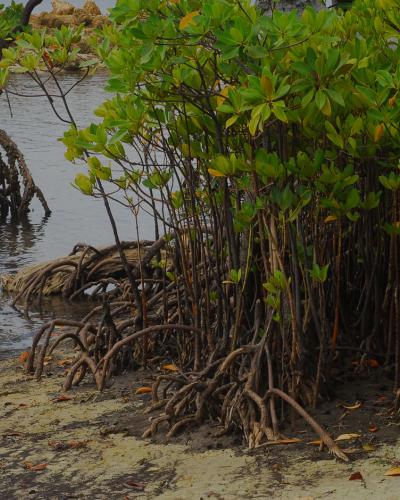Implementation of the Strategic Action Programme for the protection of the Western Indian Ocean (WIOSAP)

PROJECT SUMMARY
There is a broad scientific consensus in the Western Indian Ocean (WIO) region that the critical coastal and marine ecosystems, mainly mangroves, seagrasss beds, estuaries/rivers and coral reefs will continue to be degraded by the impacts of land-based sources and activities without significant conservation interventions that cuts across the region. The Project entitled ‘Implementation of the Strategic Action Programme for the protection of the Western Indian Ocean from land-based sources and activities’ (WIOSAP) is intended ‘to reduce impacts from land-based sources and activities and sustainably manage critical coastal and marine ecosystems through the implementation of the agreed WIO-SAP priorities with the support of partnerships at national and regional levels’. The WIOSAP project is largely based on the WIO-LaB Strategic Action Programme (SAP) for the protection of the WIO Region from land-based sources and activities that was developed as part of the UNEP-GEF WIO-LaB Project that was implemented in the WIO Region in the period 2004 - 2010. The WIOSAP project is thus a response to a request made by the Contracting Parties to the Nairobi Convention and it presents an opportunity to the governments in the region and their conservation partners to jointly implement strategies of protecting the coastal and marine ecosystems from land-based sources and activities to provide essential goods and services on sustainable basis. Without such an intervention, degradation of the region’s valuable coastal and marine resources will continue unabated with a likelihood of reversing gains made by governments and conservation organisations in the region. The project recognises that concerted management effort will contribute substantially to poverty alleviation and gender equality, through sustainable livelihoods and economic development. The project will build on the national and regional conservation initiatives being undertaken by all participating countries governments and conservation organisations involved in the project at the local, national and regional levels. The project addresses main threats to the critical coastal and marine ecosystems of the WIO Region as identified in the TDA developed under the concluded WIOLaB Project that focussed on addressing land-based activities and sources of degradation of the coastal and marine ecosystems; including physical alteration and destruction of habitats; water and sediment quality deterioration due to pollution; and the alteration of river freshwater flows and sediment loads. The project addresses cross-cutting issues of governance and awareness which are important in the sustainable management of the coastal and marine ecosystems in the region. To address these main threats, the project has four main components:
- Component A: Sustainable management of critical habitats focuses on the protection, restoration and management of critical coastal habitats and ecosystems recognizing the enormous value of healthy critical coastal and marine habitats for the future well-being of people in the WIO region.
- Component B: Improved water quality focuses on the need for the WIO Region’s water quality to attain international standards by the year 2035.
- Component C: Sustainable management of river flows aims at promoting wise management of river basins in the region through implementation of a suite of activities aimed at building the capacity for environmental flows assessment and application in river basins of the region.
- Component D: Governance and regional collaboration focuses on strengthening governance and awareness in the WIO region with a view to facilitating sustainable management of critical coastal ecosystems and habitats.
The project responds to the GEF Corporate Goals 1 and 4: ‘Global natural resources’ and ‘Building national and regional capacities and enabling conditions for addressing transboundary systems’ respectively, and more specifically to the GEF Strategic programme objectives for international waters ‘catalyze multi-state cooperation to rebuild marine fisheries and reduce pollution of coasts and Large Marine Ecosystems’.
The project contributes to Sub-programme 3 of the UNEP Programme of Work on “Ecosystem management” and in particular expected accomplishments 3(a), (b), and (c) with the aim to contribute to countries increasingly being able to practice integrated management of terrestrial and freshwater ecosystems and mainstreaming cross-sectoral and integrated ecosystem management principles in their development and planning processes (Expected outcome (a) and expected accomplishment (b). 4 Services and benefits derived from ecosystems will be increasingly integrated into national development planning and accounting (expected accomplishment c). The project contributes to the WIO region’s priorities for addressing the impacts of climate change and also supports core human and institutional capacity building in line with other GEF-IW strategic objectives. The project will be implemented and executed through a “Partnerships Approach” with the Nairobi Convention Secretariat being the executing agency. The participating countries include Comoros, Madagascar, Mauritius, Seychelles, Mozambique, Kenya, Tanzania, Somalia and South Africa.







